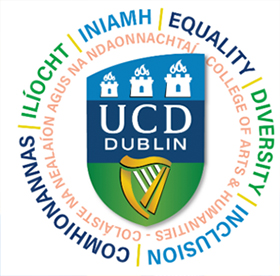 Equality, Diversity and Inclusion Report
Equality, Diversity and Inclusion Report
Posted 26 August 2021
This report provides details of some of the key activities and initiatives related to Equality, Diversity and Inclusion (EDI) that were carried out in the College of Arts and Humanities in the academic year 2019/20. It was drafted collaboratively, with input from across the College, facilitated by the respective EDI reps in each School. This report does not capture everything, partly because colleagues under time pressures were perhaps not able to provide details of their activities, and also because others perhaps never saw their work as related to EDI matters. This document will, however, hopefully serve to raise awareness in this regard and encourage colleagues to see their own work through an EDI lens in future.
The report is organised under different key headings, based loosely on UCD’s EDI categories, which are further divided up into the areas of Research, Teaching and Learning, and Outreach, Impact and Service. Although much of the work done is intersectional in nature, the headings are there both to help colleagues identify other people working in areas of shared interest and also to highlight areas that require more focus. We can see, for example, that nothing was reported that fits into the EDI category of ‘Age’ and there was only one activity that related to the ‘Traveller Community’. By contrast, a great deal of work is being done in the areas of ‘Gender, Sexuality, and Civil and Family Status’. The various initiatives in relation to ‘Racialisation and Decoloniality’ also signal this field as a clear strength, although more must be done to ensure that, in tandem with the curriculum becoming more diverse, the College and University also does more to attract and retain more people of colour amongst our students, staff and faculty.
Our College is shaping and driving discussions around EDI, both in the university and beyond, since many of our academic interests intersect with EDI matters in various ways. This comes through in the wealth of activities and initiatives listed below. Key activities from across the different categories include:
-
The now award-winning Access Classics programme, developed and introduced by Tasneem Filaih, Bridget Martin and Christopher Farrell, which aims to widen participation in, and encourage engagement with, ancient Greek and Roman civilisations, their interactions with other cultures, and their continued impact on our world.
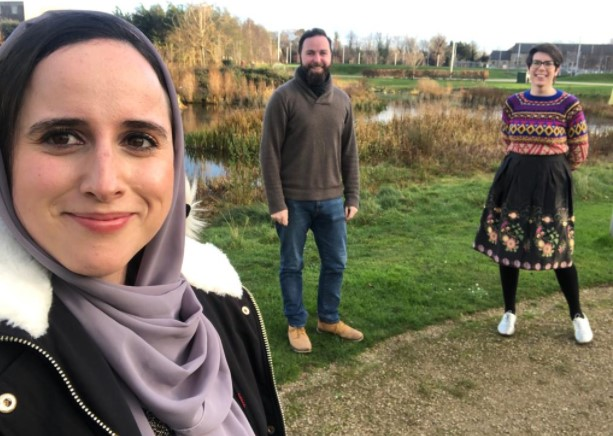
Tasneem Filaih, Christopher Farrell and Bridget Martin of the Access Classics Team
-
Efforts towards decolonisation and diversification of the curriculum across the College, including work by Marc Caball, Annette Clancy, Sharae Deckard, Treasa De Loughry, Jamie Jones, Jorie Lagerwey, Emma Penny, Sandra Scanlon and others, in dialogue both with students and with the research of decolonial thinkers.
-
The School of Languages, Cultures and Linguistics’ Athena Swan Bronze Award, with Pascale Baker and Bettina Migge chairing the self-assessment team
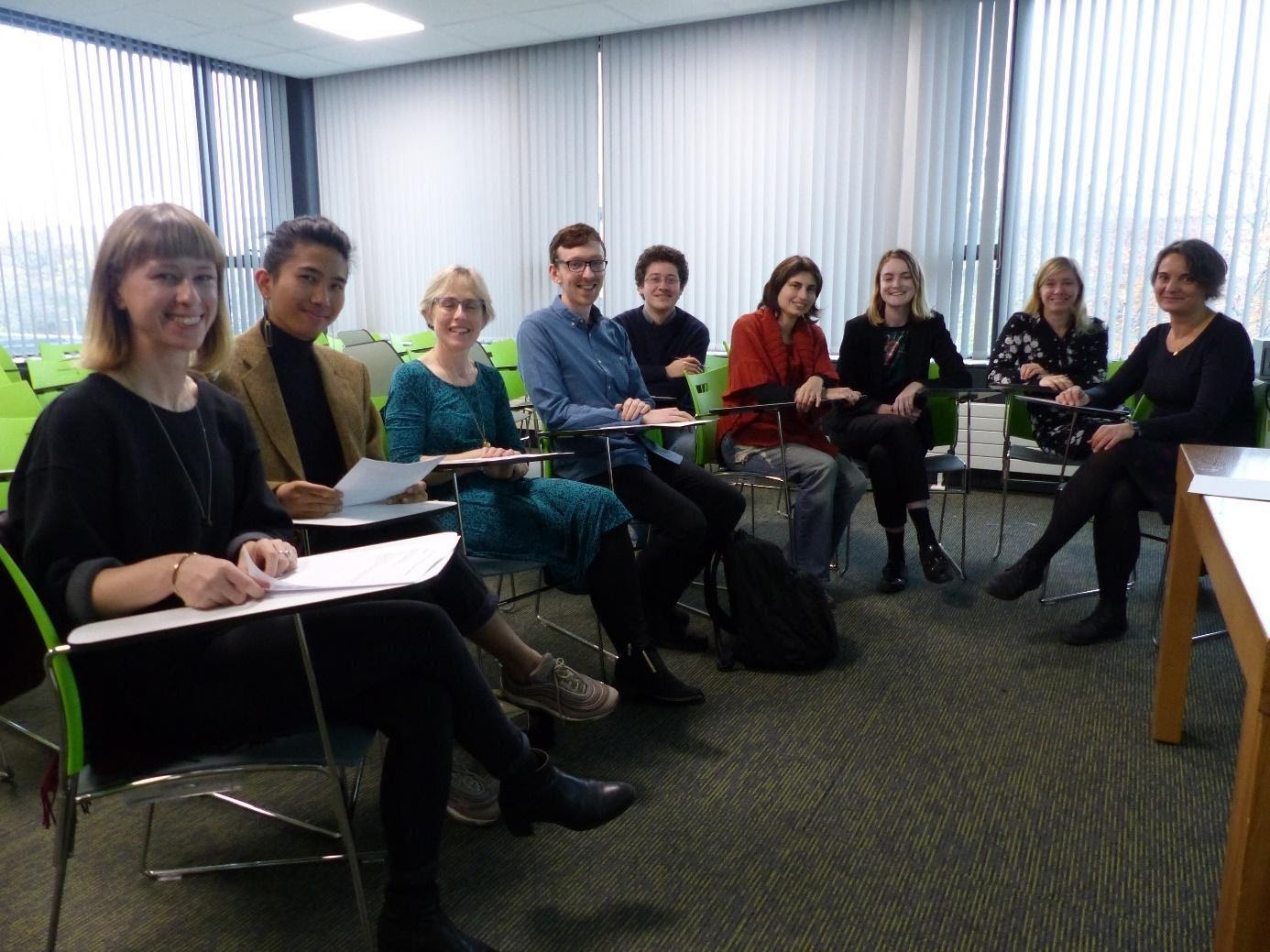
A Meeting of the School of Languages, Cultures and Linguistics Athena Swan Self-Assessment Team.
-
The Brokering Intercultural Exchange network, co-founded by Victoria Durrer, which seeks to build understanding of the role of arts and cultural managers as intercultural brokers in our context of globalisation, internationalisation and global migration
-
The new Irish language rap, ‘Seo Mo Spás’ [This Is My Space] by Eoin McEvoy, celebrating the diversity within the Irish-speaking community
-
Kathleen James-Chakraborty’s grant from the Global Architectural History and Theory Teaching Collaborative’s ‘Anti-Racism and Global Architectural History’ special call
-
Gerardine Meaney’s (SEDF) ERC-funded project ‘European Migrants in the British Imagination: Victorian and Neo-Victorian Culture’, which addresses long-term attitudes to migrants as well as tracing the contribution of migrants to literature in a transhistorical framework
-
Peter Moran’s song-writing workshops with the Dublin Simon Community, including a performance at Dublin Castle
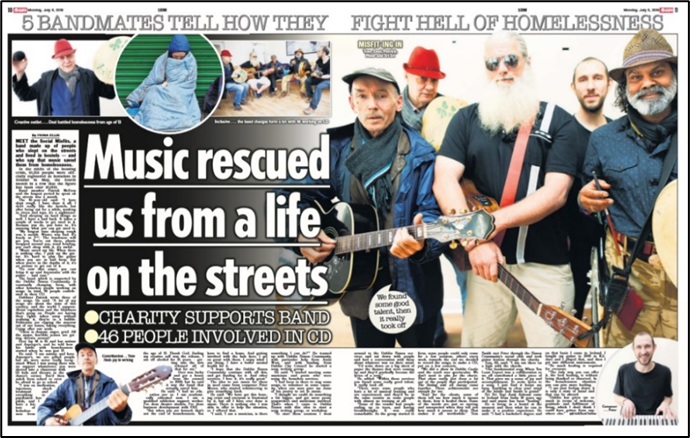
Article in the Irish Sun on The Social Misfits, a band formed through Peter Moran’s initiative with the Simon Community
-
The workshop ‘#MeToo and the University’, led by Cormac O’Brien and visiting scholar Dawn Campbell (South Carolina), designed to speak to the EDI categories of gender and sexual orientation
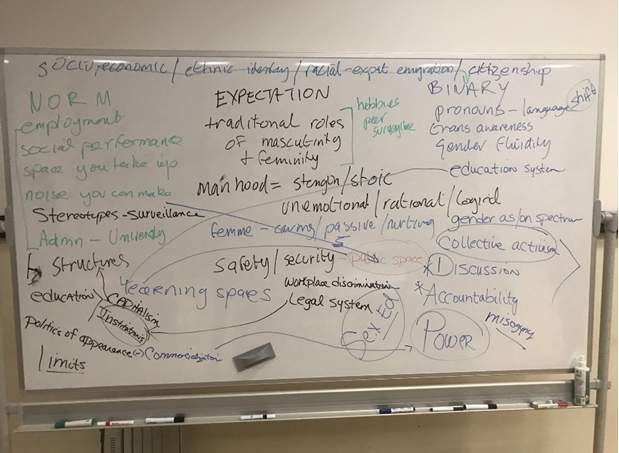
Key Concepts from the ‘#MeeToo’ workshop
-
Maria Stuart’s Welcome-funded project ‘Metaphoric Stammers and Embodied Speakers’, connecting clinical, cultural and creative practice in the area of dysfluent speech
This report also highlights how colleagues are working with external bodies (such as Arts & Disability Ireland; The Gay Project, Cork; MASI The Movement of Asylum Seekers in Ireland; Queer Action Ireland; and the George Padmore archive) to promote equality, diversity and inclusion outside the UCD campus.
A central aim of UCD’s EDI policy is to mainstream EDI issues in all areas of the university. I would like to thank colleagues for their commitment to matters of Equality, Diversity and Inclusion.
I invite you to explore the College’s events and initiatives for 2020/21 in the links below. I hope this report recognises this far-reaching and widespread commitment, but can also build momentum and contribute towards further cultural change.
Joseph Twist (Vice Principal, EDI)
Contents
- Disability
- Diversity and Intersectionality
- Gender, Sexuality, and Civil and Family Status
- Racialisation and Decoloniality
- Religion
- Socio-Economic Status
Appendix 1: Composition of the College of Arts and Humanities EDI Committee
Appendix 2: EDI Student Survey (17 February-5 May 2020), authored by Deirdre Flynn